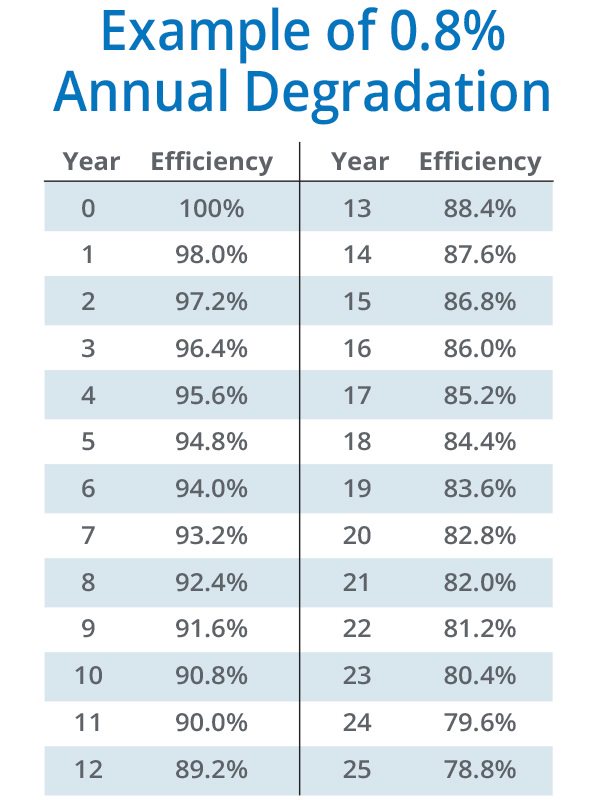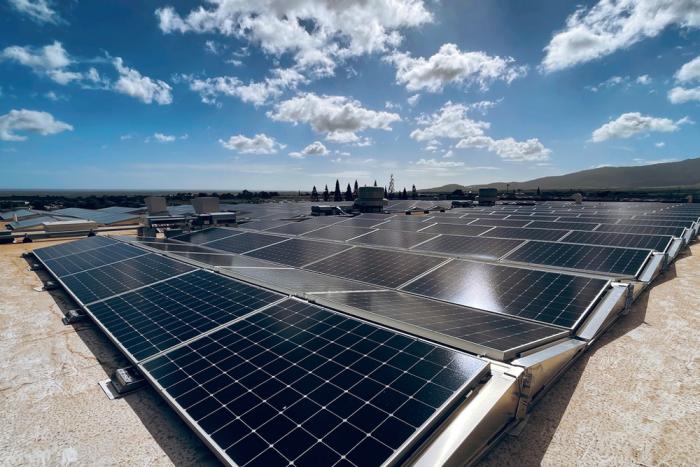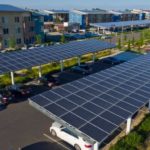Three Takeaways from SunPower’s SXSW Panel

Last week, SunPower’s Head of Policy and Strategy, Suzanne Leta, participated in a panel at SXSW. Hundreds of thousands of people from across the globe travel to SXSW every spring. More than just a music and film festival, budding professionals and industry leaders attend the Interactive element of the event to hear the latest innovative ideas and experience cutting-edge technologies in person. This year, one of the festival’s hot topics revolved around sustainability and the call to address climate change.
Joined by Walter McLeod of Black Owners of Solar Services (BOSS), Ethan Zindler of BloombergNEF and Jennifer Hiller of The Wall Street Journal, Suzanne participated in a panel discussion on how to protect the planet through an equitable energy transition. The panel focused on three key takeaways that anyone can put into practice today to begin making a difference.
Electrification is the Key to the Future
From trading in your gas-fueled car for an electric vehicle to installing SunPower’s sleek solar panels on your rooftop, your daily choices can help foster a better, cleaner planet.
More Americans today are enjoying the benefits of all-electric homes through solar + storage, heat pumps and electric stoves. Some states are inserting electrification standards into their energy codes. For example, California’s Title 24 requires newly built homes to adopt many forms of this cleaner and more efficient technology, such as solar energy.
The all-electric transition is also more affordable for a growing number of homeowners thanks to laws like the Inflation Reduction Act, which increased and extended the solar investment tax credit. Now and for the next 10 years, qualified Americans can receive a 30% tax credit for the purchase of clean energy solutions including solar panels, solar batteries and electric vehicle chargers.1
Choosing alternative power sources not only helps reduce harmful emissions from fossil fuels, but can also provide other benefits such as better power grid stability and utility savings for those with solar energy. And as more Americans follow suit, that impact only grows.
Policies Help Shape Opportunities For All
Expanding access to renewable energy for all Americans is essential to truly change the way our world is powered. Locally based incentives and rebate programs like net energy metering and federal incentives through the Inflation Reduction Act can make or break the adoption of clean energy. It takes policies like these to help make clean energy affordable for everyone.
But beyond that, clean energy creates well-paying opportunities for job seekers. Policies in favor of industries like solar power can foster a healthy and diverse economy that fuels these careers. The Inflation Reduction Act has opened the door for more career opportunities in clean energy. So far, over 100,000 new jobs have been created and that number is only expected to increase. But there are still barriers that need to be eliminated to further propel growth.
Black Owners of Solar Services (BOSS) is an organization working to eliminate barriers that minority-owned businesses face within the solar industry. BOSS relies on policy to shape markets that enable accessibility for Black-owned businesses. The organization recently received a grant from the Department of Energy to train and help entrepreneurs take advantage of DOE resources. Resources that wouldn’t be available without leaders driving change through policy.
Solar + Storage is a Great First Step
Adopting a more sustainable lifestyle can seem daunting at first. There are plenty of options available to improve your carbon footprint but solar energy often comes out on top. This is partially because it is easily accessible. SunPower has a large dealer network that expands from coast to coast, helping homeowners get high-quality solar panels in their respective communities.
Beyond that, solar power is quickly becoming one of the most affordable energy sources available. Solar homeowners often see savings on their utility bills and can also sometimes benefit from local programs like net energy metering and virtual power plants to receive compensation for their power generation. But residential dwellings aren’t the only living spaces that can take advantage of solar energy. Multifamily developments are also joining the clean energy revolution.
California’s Title 24 energy code requires multifamily developments three stories or less to install solar panels. The state has multiple incentive programs available for builders looking to save on their energy-efficient projects. SunPower’s multifamily division specializes in helping builders maximize their profits and even build in benefits for renters.
With the right design plan, multifamily solar systems can produce income through virtual net energy metering (VNEM). Through VNEM, solar power generated can be converted into credits on participating utility accounts within the development (including tenant utility accounts). A percentage of these solar credits can be shared with tenants serving as an attractive amenity for eco-conscious or financially savvy renters.
If you’d like to dive deeper into our panel, Reaching Critical Climate Goals Requires Everyone, you can watch the recap of our live stream featured on the SunPower Facebook page.
1Tax credits subject to change. SunPower does not warrant, guarantee or otherwise advise its customers about specific tax outcomes. Consult your tax advisor regarding the solar tax credit and how it applies to your specific circumstances.
Related posts
How Women’s History is Shaping the Solar Industry
Five Reasons to Get a Job in Solar Energy
Original Source: https://us.sunpower.com/blog/2023/03/16/takeaways-sunpowers-sxsw-panel


















